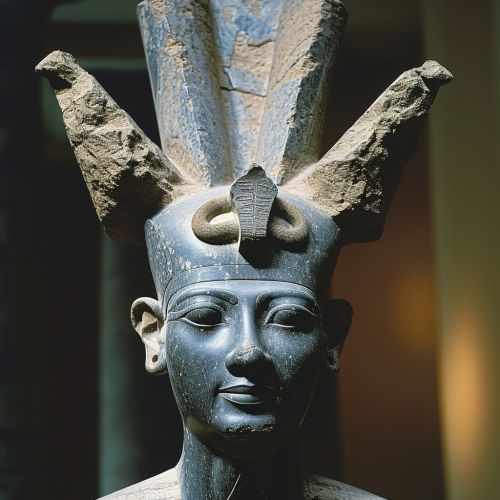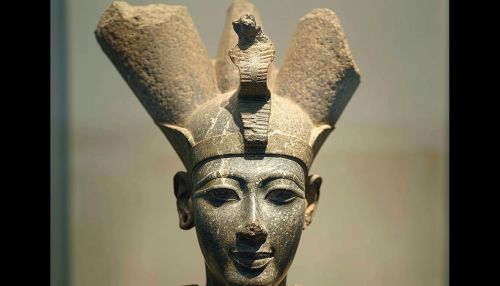Amun
Overview
Amun was a major ancient Egyptian deity who played a key role in the Egyptian pantheon. His name, also spelled as Amon, Amoun, Amen, and rarely Imen, means "The Hidden One" or "Invisible". Amun was associated with the air, sun, and fertility, and was often combined with the sun god, Ra, to become Amun-Ra, a solar creator god.
Origins and Development
Amun's origins are rooted in the city of Thebes, where he was worshipped as a local deity. However, his influence quickly spread throughout Egypt during the Middle Kingdom period, when Thebes became the capital of the unified Egypt. Amun was considered the king of the gods and was often depicted as a man wearing a crown with two tall plumes.


Worship and Cult
The cult of Amun was one of the most powerful in ancient Egypt. The main temple dedicated to Amun was located in Karnak, in Thebes, and was known as the "Ipet-Sut" or "Most Select of Places". This temple complex was one of the largest religious buildings in the world and was the center of Amun's worship.
Amun and the New Kingdom
During the New Kingdom period, Amun's status grew to such an extent that he was often identified with the supreme god of the pantheon, Ra. This led to the creation of a combined deity, Amun-Ra, who was considered the king of the gods and the lord of the heavens. This period also saw the rise of the Amun priesthood, who held significant political power.
Amun in Art and Iconography
In ancient Egyptian art, Amun is often depicted as a man wearing a crown with two tall plumes, a symbol of his hidden and mysterious nature. He is also frequently shown in the company of his consort, Mut, and their child, Khonsu, forming the Theban triad.
Decline and Legacy
The worship of Amun declined during the late New Kingdom period, particularly during the reign of Akhenaten, who promoted the worship of the sun disk, Aten, over traditional gods like Amun. However, Amun's influence persisted in some form, and he continued to be revered as a powerful deity.
